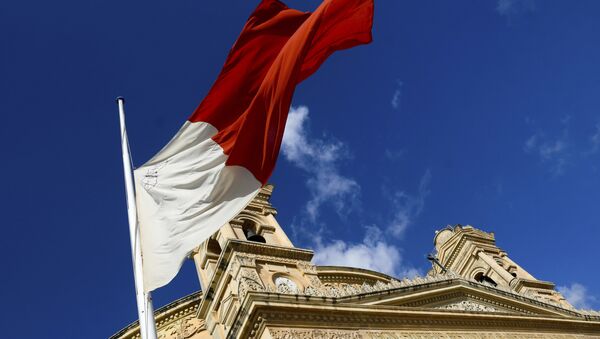The ruling is the first judicial step in the high-profile murder case which has rocked the Mediterranean island nation.
Fenech was charged with complicity in murder, complicity in causing an explosion and participating in a criminal organisation, local newspaper Malta Today reported. Fenech pleaded not guilty to all of them.
Yorgen Fenech’s charge sheet.
— BugM (@bugdavem) November 30, 2019
The charge is broad enough to cover conspiracy for the assassination of #DaphneCaruanaGalizia all the way to financing & funding.
It also includes a general freezing order. This will both affect Tumas Group’s “golden B share” & #Electrogas. pic.twitter.com/7Lc6nZqESL
The wealthy businessman was arrested on 20 November on his yacht when allegedly making an escape from the country by sea. He was later released on bail but ordered to appear in court, according to the newspaper.
Maltese politics has been in turmoil in recent weeks with a probe into the murder leading to the resignation of two ministers and the arrest of the prime minister's chief of staff for various degrees of involvement with Fenech.
Prime Minister Joseph Muscat's position at the helm of the government appeared to be at risk as many of his associates have been implicated in the Galizia murder case. Muscat said in a press conference on Friday that he will not step down before the end of the investigation.
Caruana Galizia documented payments by Fenech's company 17 Black to Maltese politicians eight months before her death. She was killed by a car bomb outside her Bidnija home in October 2017.
The Daphne Project followed the money. Yorgen Fenech was named as 17 Black's owner in November 2018. A year later, he was charged with complicity in blowing up the journalist who first named 17 Black. Government officials set up offshore structures to receive money from 17 Black pic.twitter.com/9yo4WsHglY
— Jacob Borg (@BorgJake) November 30, 2019
Ironically, Daphne was subject to over 40 civil and criminal defamation suits, of which 30 were posthumously transferred to her family under Maltese law that allows claimants to pursue actions against the heirs of a deceased defendant. Among the claimants was PM Muscat, who has refused to drop his case unless the journalist's family accepts the findings of an inquiry he claims exonerated him of corrupt activity.
The journalist was known for her investigations into various cases of corruption in Malta based on the so-called Panama Papers, which revealed illegal finance practices of officials and public figures from various countries.


